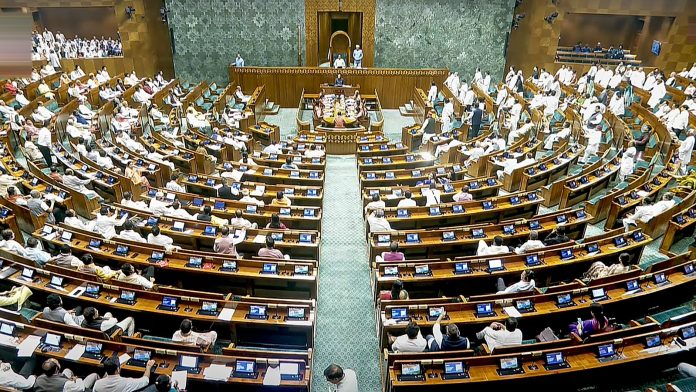The Union government is expected to introduce new legislation that will completely prohibit online money gaming, in what will close a legal vacuum that created inconsistent regulation across states and left millions of users — especially children and young adults — vulnerable to predatory platforms and financial exploitation

The Promotion and Regulation of Online Gaming Bill, 2025 is likely to be introduced in the ongoing session of parliament, people aware of the matter said. The legislation proposes a ban on platforms or games where users pay money or stakes with expectations of monetary returns, according to a draft seen by HT. The proposed law explicitly excludes e-Sports from this definition.
ALSO READ | Online gaming rules are not enforceable govt tells court
“The immersive and addictive nature of online games, particularly with monetary incentives, has led to significant mental health issues among users — especially children, adolescents and young adults,” MeitY stated in the proposed law. “Clinical evidence and field studies have shown a rise in anxiety, depression, sleep disorders, and behavioural problems linked to prolonged gaming.”
Online gaming covers a broad spectrum, from casual mobile games and educational apps to money-based fantasy sports and poker platforms. Several states have targeted the latter category, citing their constitutional authority to regulate gambling and betting.
ALSO READ | 50-year-old uncle held for murdering minor nephew over online gaming
However, this piecemeal approach has created legal confusion over what constitutes games of skill versus chance. The regulatory gaps have allowed operators to relocate between states or move offshore.
At present, India has no federal regulation on online gaming. But a patchwork of laws exists, with the states of Tamil Nadu, Karnataka and Andhra Pradesh banning online money gaming outright, while Sikkim and Nagaland require registration for operators, and others like Telangana restricting certain forms of online gambling
The central bill also links online money gaming to wider risks including fraud, money laundering, tax evasion and, in extreme cases, terror financing.
The bill seeks to draw a sharp line between e-Sports and social gaming on one hand, and gambling-style online money games on the other, according to the proposal formulated by the ministry of electronics and information technology (Meity), seen by HT.
ALSO READ | Allahabad HC asks UP govt to form panel over online gaming, betting regulation
Anyone found offering or facilitating online money games could face up to three years imprisonment or fines reaching ₹1 crore, or both. Repeat offenders face harsher mandatory punishments. Advertising such platforms has also been criminalised, with penalties extending to two years imprisonment and fines up to ₹50 lakh or both.
“The proposed framework has effectively erased the long-standing and judicially recognised distinction between games of skill and games of chance. Even though the IT Rules amendments in 2023 had moved away from this binary, it still had the provision for recognizing some online money games as ‘permissible’. What we now see in the bill is a complete prohibition: the definition of online money games is so wide that it captures all forms of games involving money. In such a regime, it no longer matters whether a game is skill-based or chance-based. The distinction is irrelevant,” said Rahil Chatterjee, senior associate at Ikigai Law.
Financial institutions have been barred from processing payments linked to money gaming, a move aimed at choking off both domestic and offshore operators that bypass state laws.
If a company is found guilty of violating the law, not just the company but also the people in charge of running that part of the business will be held responsible and face punishment, the proposed law states.
The legal greys have also involved money laundering concerns. The Enforcement Directorate investigation recently held a sweeping crackdown into celebrities promoting online gaming platforms that facilitate illegal betting. The agency has been questioning film stars, cricketers, influencers, and representatives of big tech companies as part of a broader crackdown on money laundering associated with betting apps.
The ministry, in its note, added that a growing number of individuals have fallen victim to financial losses due to online money gaming, “sometimes resulting in extreme outcomes such as suicide, as widely reported in national and regional media.”
“In many cases, players are lured into a cycle of gaming with little awareness of the risks or legal protections,” the ministry said. “Such content not only undermines Indian cultural values but also creates long-term behavioural conditioning among impressionable users.”
To enforce these provisions, the bill provides for creating a new authority on online gaming or designating an existing authority, which will categorise and register games, issue compliance directions, and respond to user complaints. It will also have power to recommend blocking illegal services under Section 69A of the Information Technology Act.
